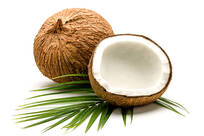-
Home page
- Doctors whose revolutionary thinking linked diet with disease >
- Waste not, want not
- Ban Real meat? How dare they
- Can we trust governments to look after our Wellbeing
- Self Help can be very beneficial
- Coronavirus-is-the-uk-in-danger-of-becoming-a-police-state
- One of the greatest Crimes against Humanity
- Covd 19, was logic one of the first victims?
- That Gut Feeling
- Why don't doctors and vets share their wisdom
- Foods to avoid
- Degenerative diseases
- Deficiency Diseases
-
Drugs and treatments
- Altering Nature
- Hip and Knee replacements
- Too many pills?
- Measles - revealing the truth
- Are vaccinations damaging our children?
- Vaccinations update
- Statins - Are they effective and safe?
- Are Statins Safe?
- Statins - vested interests
- Not to be sneezed at
- Sepsis - a modern day plague.
- Selenium
- Vitamin C as a medicine
- Antibiotic resistant infections
- Vitamin & Mineral depletion
- Big Pharma
- Routine vaccinations.
- Heart Surgeon admits huge mistake.
- Mammograms, are they doing more harm than good?
- Chronic Inflammation
- To be or not to be vegetarian?
- Looking back for future farms
- How Food is produced
- Surviving in a Heat Wave
- What is good for you
- Fluoride - is there poison in your drinking water?
- Save our soil
- Why are hosptals full
- Beauty and the Beastly Chemicals
- Diets for pets
- Hidden dangers in the bathroom
- Unbalanced aggression
- Blame the Genes
- Homeopathy - a case history.
- Reducing carbon emmissions
- Glyphosate - the slow poison
- Make contact
- Terms & Conditions
- Fuellmich
- Coronavirus, legal


